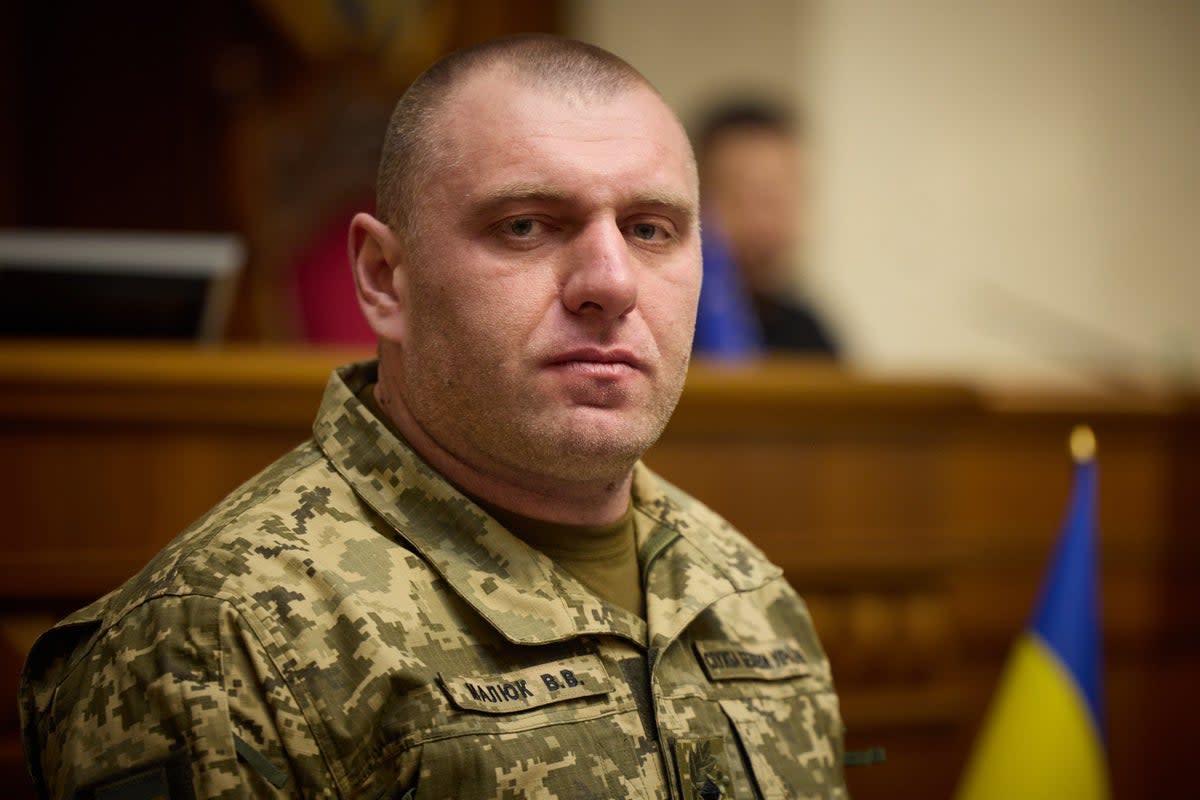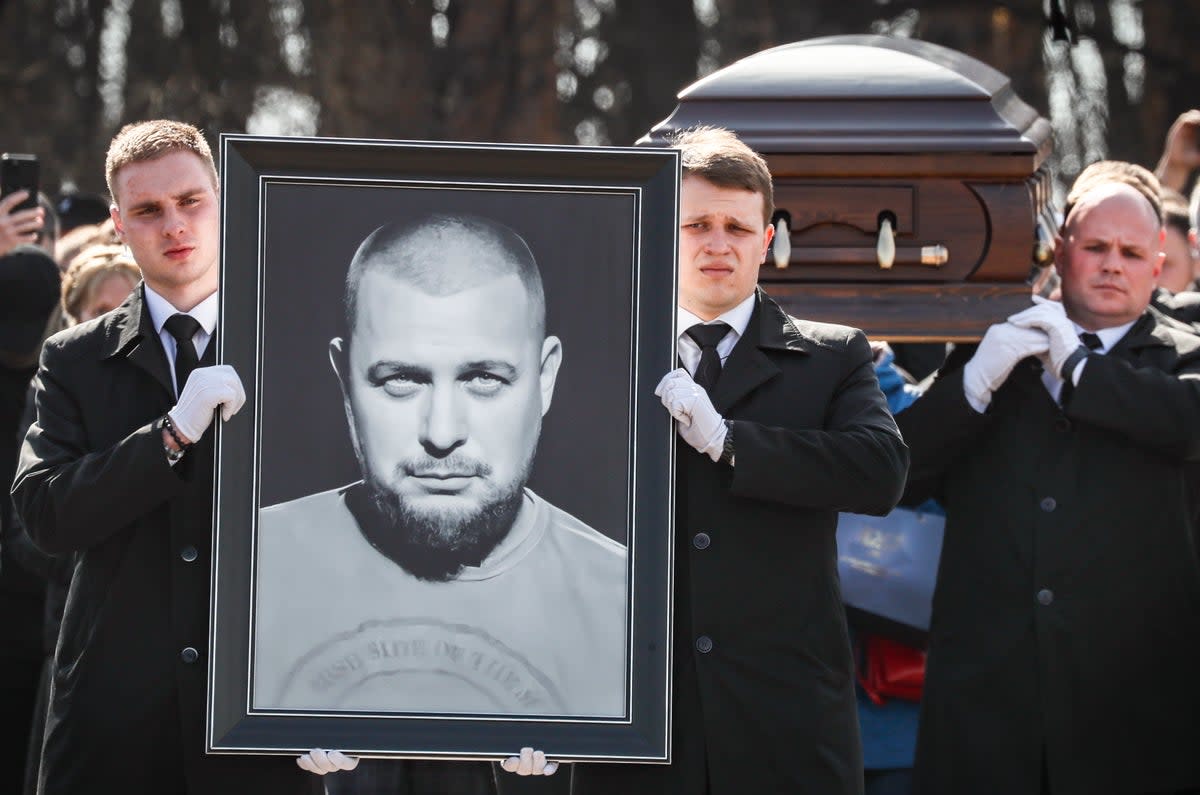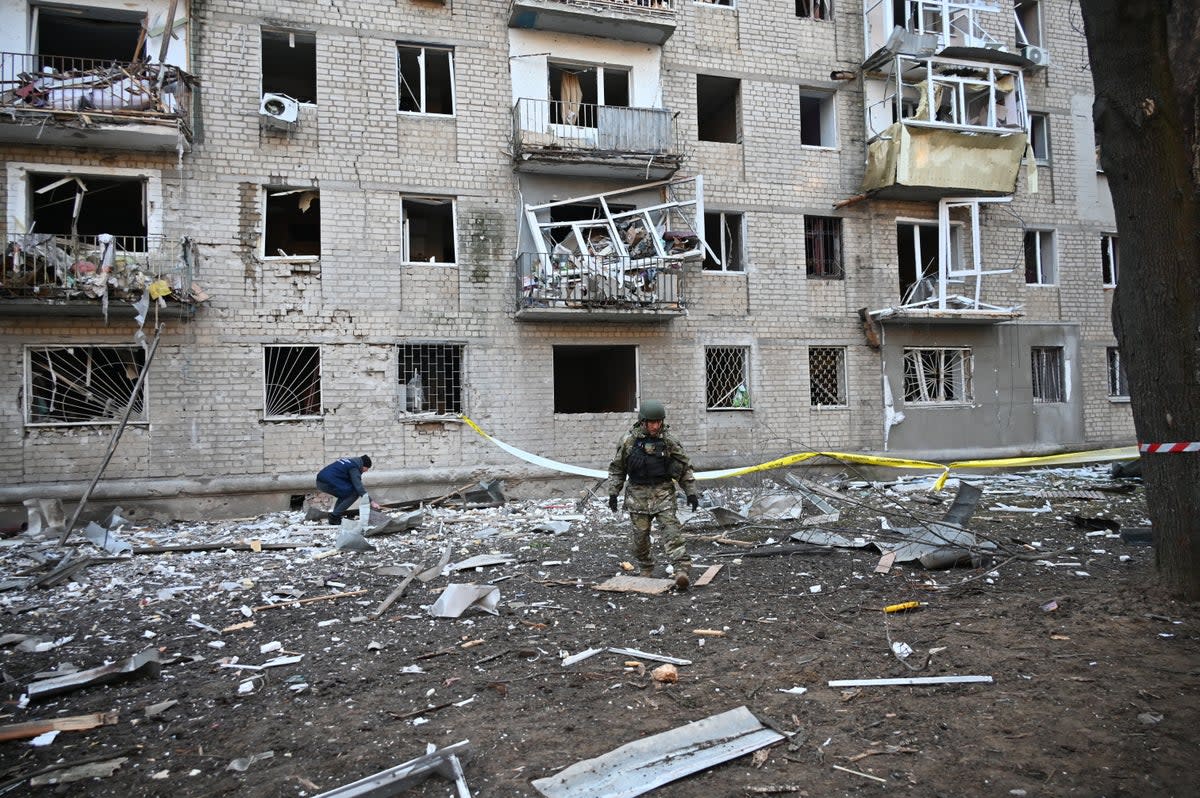Ukraine spy chief details assassination campaign against Ukrainians collaborating with Russia

The head of Ukraine’s national spy agency has revealed details of a secretive assassination campaign apparently targeting Ukrainians collaborating with Russia.
In an hour-long televised interview Lieutenant General Vasyl Malyuk, chief of the Security Service of Ukraine (SBU), spoke about a number of high-profile killings in Russian-occupied territory and Russia itself, including that of a pro-Kremlin military blogger in Vladimir Putin’s hometown of St Petersburg.
Lt Gen Malyuk claimed “very many” people responsible for war crimes and attacks against Ukrainian citizens had been targeted. But he said: “Officially, we will not admit to this... But at the same time, I can offer some details.”
The most high-profile killing he spoke about was that of Ukraine-born Vladlen Tatarsky, a Kremlin propagandist and media personality who had more than half a million followers on the Telegram messenger service.
Tatarsky joined with pro-Kremlin forces invading eastern Ukraine in 2014 after being jailed for robbing a bank.
He was known to have ties with the Wagner mercenary group, a Russian militia that captured the eastern Ukrainian city of Bakhmut last May before staging a mutinous march on Moscow the following month. Lt Gen Malyuk said Tatarsky was targeted for his military service fighting against Ukraine and his calls for the elimination of Ukrainians.
He was killed when he was handed an explosive-rigged statuette in a St Petersburg cafe in April last year. The spy boss claimed operatives had duped an intermediary, a young woman, into handing the statue to Tatarsky. A woman, Darya Trepova, has since been jailed for 27 years over the killing. Trepova told her trial she was following instructions from a man in Ukraine. She told the court she had been gullible and naive to believe him.

The SBU would not take credit for the execution but Tatarsky deserved it, Lt Gen Malyuk said, accusing the pro-war blogger of repeated abuse of Ukrainian prisoners of war for Kremlin propaganda.
Another case Lt Gen Malyuk spoke about was Ukrainian parliament member Ilya Kyva, who spoke against Ukrainian independence and was considered a traitor by Kyiv before he was shot dead near Moscow in December. Sources within the SBU had previously told a number of outlets that the service was responsible for the killing.
At the time, Ukraine’s military intelligence spokesperson Andriy Yusov hinted at the country’s involvement in the killing: “We can confirm that Kyva is done. Such a fate will befall other traitors of Ukraine, as well as the henchmen of the Putin regime.”
The interview with Lt Gen Malyuk comes as Ukraine’s air force chief said that Russia had launched 13 “Shahed” drones at Ukraine overnight, 10 of which were downed in the Kharkiv, Sumy and Kyiv regions.
“Anti-aircraft missile units, mobile fire groups, electronic warfare equipment... were involved in repelling the air attack,” air force chief Mykola Oleshchuk said.
It was unclear what happened to the other three drones but Kharkiv governor Oleh Syniehubov reported that a school and private home were damaged in Izyum, roughly 30 miles from the eastern frontline, after an “enemy ‘Shahed’ attack took place”. One person was killed and another 16 were injured in the airstrikes, officials said.
Kharkiv city, the capital of the region, is one of the most dangerous civilian areas in Ukraine away from the frontline. Hundreds of thousands remain without electricity following a long-range missile and drone attack last week, while vital air raid sirens used to alert civilians of incoming attacks were destroyed over the weekend.

A former Ukrainian officer in charge of anti-missile defences estimated it took just three to four minutes between Russia launching a missile at the city and the subsequent explosion in Kharkiv.
Russian air defence units on Wednesday downed 16 airborne targets around the city of Belgorod in southern Russia, with no injuries reported on the ground, regional Governor Vyacheslav Gladkov said.
Meanwhile, Russia’s foreign ministry spokesperson Maria Zakharova became the latest Russia official to try and suggest that an attack on a Moscow concert hall that killed 143 could be traced to Ukraine. President Putin has previously sought to lay the blame for the attack at the feet of Kyiv and its Western backers without providing any evidence.
The attack has been claimed by Isis, with the US and France saying their intelligence services are clear that is the case. Britain’s foreign secretary, David Cameron, has also described claims that Ukraine – or the West – were involved in the Crocus City Hall attack as “utter nonsense” in a post on X.
Ms Zakharova said it was “extremely hard to believe” that Isis would have the capacity to launch the attack in Moscow – with the Kremlin seeking to justify its now two-year invasion of Ukraine that has been roundly condemned by the international community. The US warned earlier in March that an attack could be imminent.
The official death toll from the Moscow mass shooting stands at 143 dead and 182 wounded. The Investigative Committee, which deals with major crimes, said in a statement that 84 bodies had so far been identified, including the bodies of five children aged nine to 16. It said tests were being carried out to establish the identities of the remaining victims.
However, Russia’s Baza news service, which has good contacts in Russian security and law enforcement, has claimed there could be up to 95 more people who appeared in lists compiled by the emergency services based on appeals from people about missing relatives. “These lists include people with whom relatives have not been able to get in touch since the terrorist attack, but who are not on the lists of wounded and dead,” Baza claimed.
